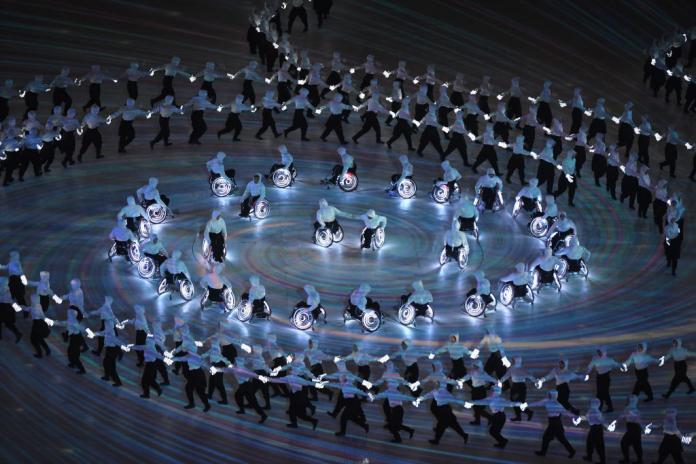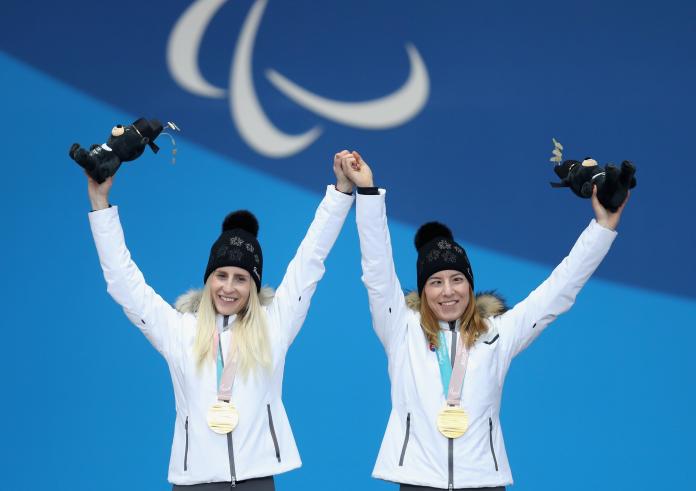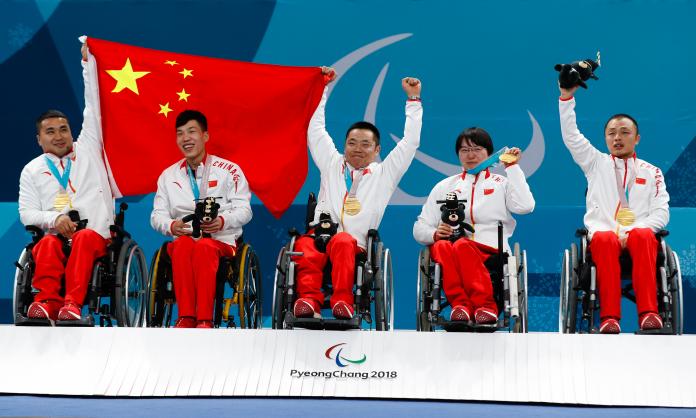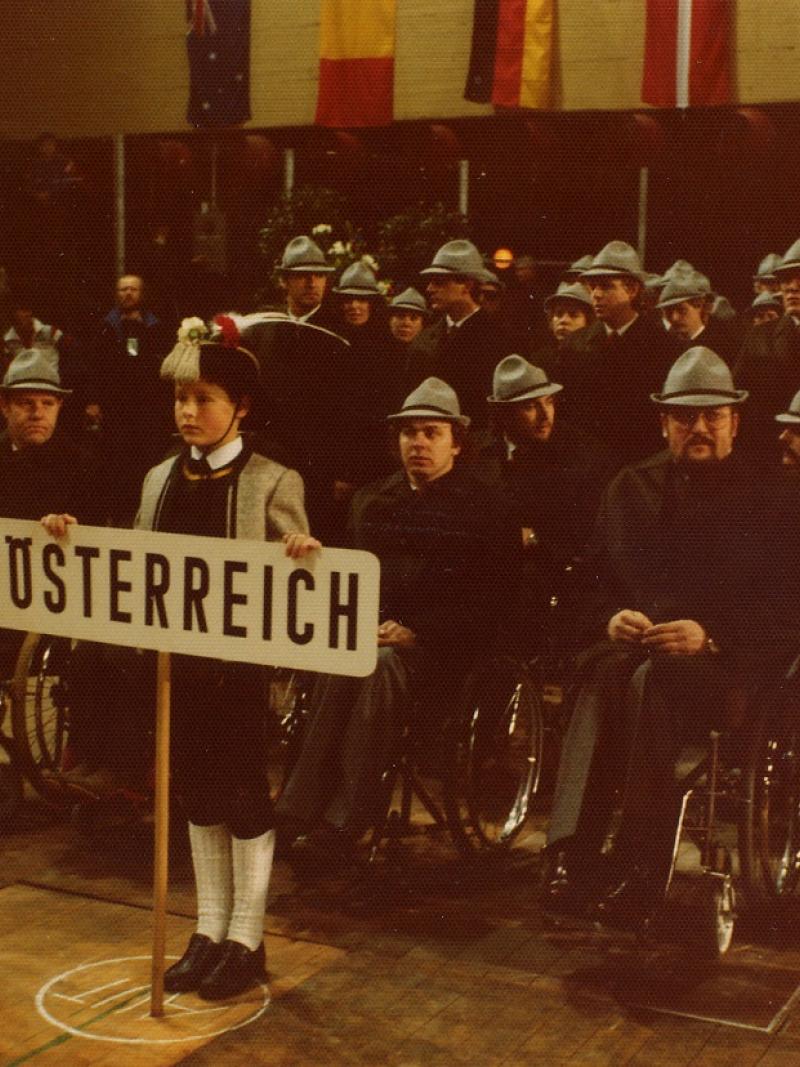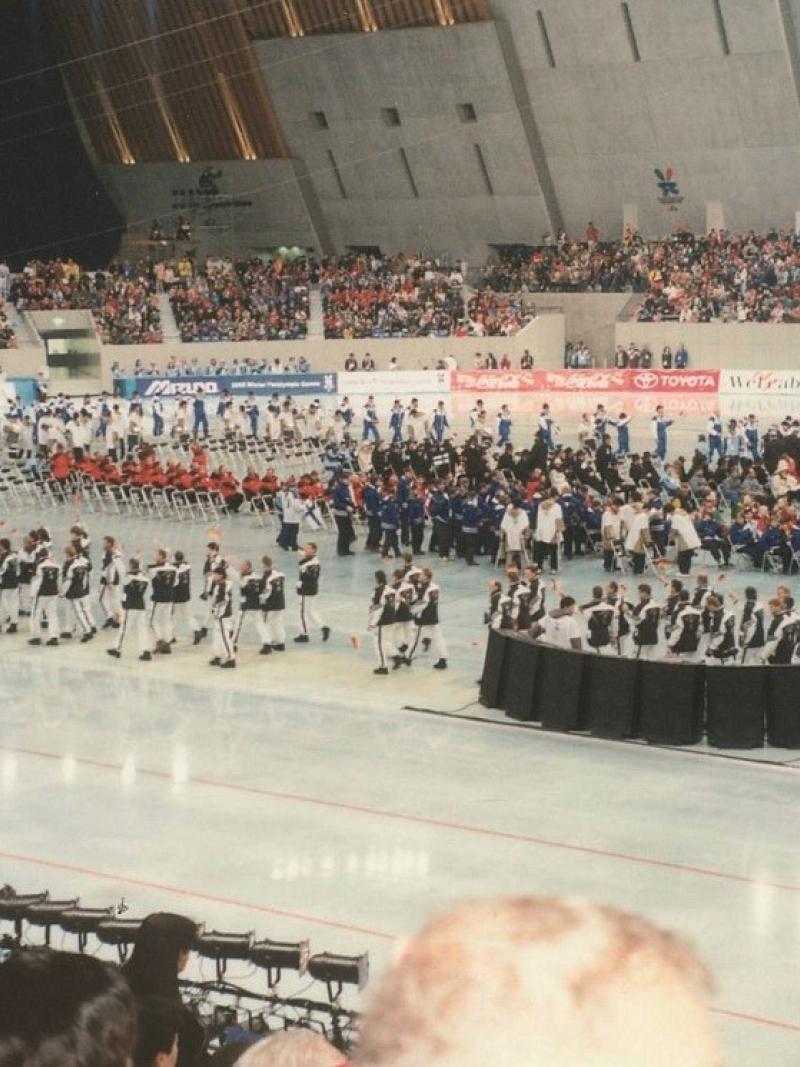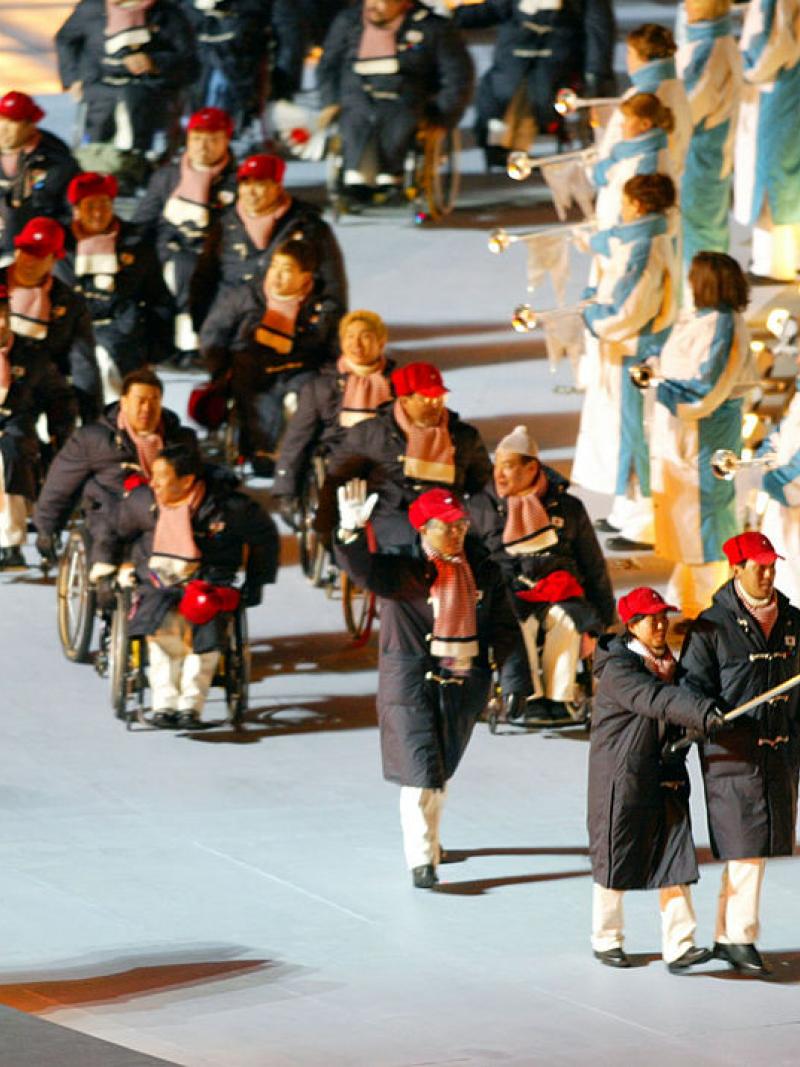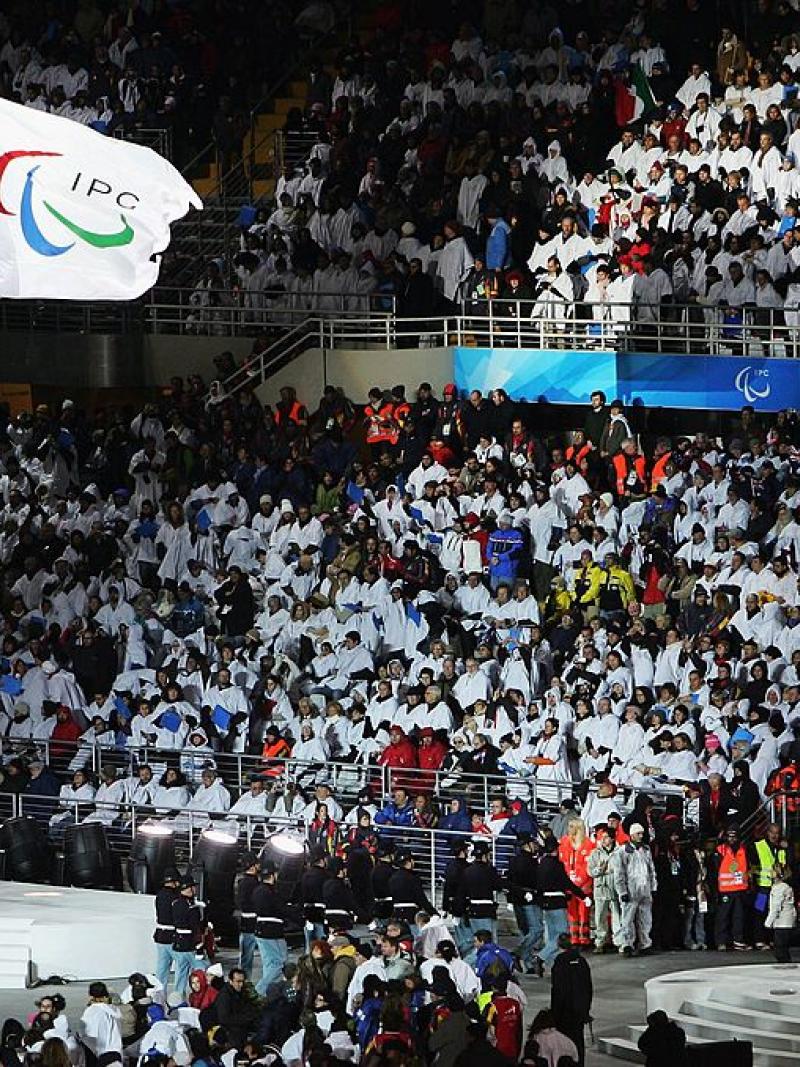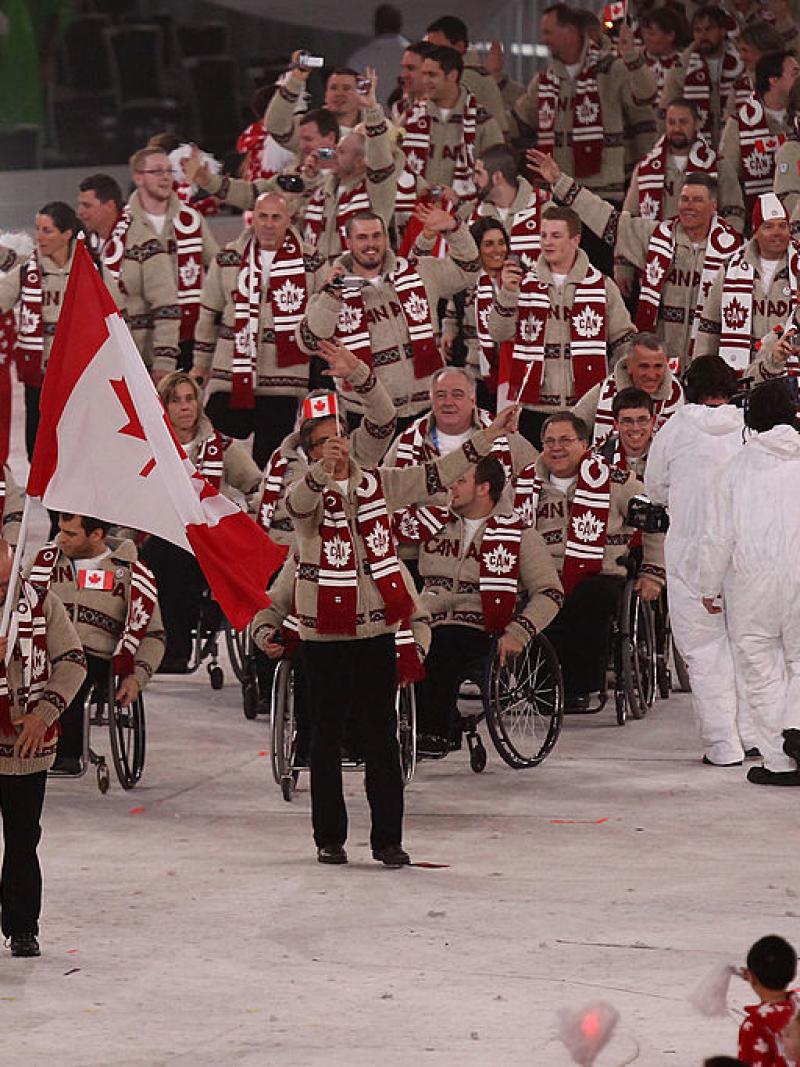Down memory lane: PyeongChang 2018, the biggest Games so far
PyeongChang 2018 Games broke all international broadcast and online viewing records, attracting more broadcasters and viewers than ever before for a Paralympic Winter Games outside of the host country 03 Mar 2022
The 12th edition of the Paralympic Winter Games - the PyeongChang 2018 Games - was the biggest so far in terms of participating athletes. PyeongChang 2018 were the second time that the Winter Paralympic Games were held in Asia, after Nagano 1998 in Japan, and was a grand success in terms of reach and influence on people.
In all, 563 athletes (430 men and 133 women) representing 49 National Paralympic Committees participated in this edition. This was more than any previous edition and athletes competed in 80 medal events across six sports in the event held from 9-18 March 2018 in PyeongChang County, Gangwon Province, South Korea.
PyeongChang 2018 Games broke all international broadcast and online viewing records, attracting more broadcasters and viewers than ever before for a Paralympic Winter Games outside of the host country.
According to Nielsen Sports figures published on behalf of the International Paralympic Committee (IPC) in 2018, the PyeongChang Games were broadcast in more than 100 territories and attracted a cumulative audience of 2.02 billion people. A further 251.5 million were reached via Games coverage on the IPC’s digital media channels.
Although the overall figure of 2.02 billion is 3.7 percent down from Sochi 2014 where the host market accounted for nearly 30 percent of the total audience, the number of viewers outside of the host country for PyeongChang 2018 grew 27.4 percent to 1.87 billion people.
Russia, who had dominated the Sochi 2014 Games with 80-odd medals, were suspended from participating under their colours and flag due to a WADA report which proved alleged widespread, state-sponsored doping in the country. Their athletes participated as neutral athletes under the IPC flag.
The United States led the medal tally with 36 medals, including 13 gold, 15 silver and eight bronze. The Neutral Paralympic Athletes - mainly Russians - finished second with 24 medals (eight gold, 10 silver and six bronze). Canada (28-8-4-16), France (20-7-8-5) and Germany (19-7-8-4) completed the top five in that order. A total of 26 out of the 49 participating countries made it to the medals table with hosts South Korea, Croatia, and China winning their first medals in Winter Paralympic Games.
Though unlike Japan (1998), Canada (2010), the USA (2002), and Russia (2014) who came up with good performances on home soil, hosts South Korea could not produce their best performance in Pyeongchang Games. But the local crowds still turned up in good numbers to support the athletes.
Among the top individual performances, Slovakia's Henrieta Farkasova dominated the Alpine Skiing in visually impaired (women) as she bagged four gold and a silver medal.
Farkasova, with guide Natalia Subrtova, missed a perfect five out of five as she had to settle for a silver medal in women's Slalom vision impaired. That took her tally to nine gold, two silver and one bronze from three Paralympic Winter Games starting from Vancouver 2010.
Among men, Canadian vision-impaired Cross-Country skier Brian McKeever was the most successful with three gold and a bronze while Theo Gmur of Switzerland bagged three gold medals in the Giant Slalom, Super-G and Downhill on South Korean soil.
There were other outstanding emotional moments too.
Dutch snowboarder Bibian Mentel-Spee claimed double gold only two months after undergoing cancer surgery.
She did not have much time to prepare for Pyeongchang 2018 having spent most of 2017 undergoing treatment for cancer. The first gold in the Snowboard-Cross was emotional, with Mentel-Spee embracing her son and mother right after beating compatriot Lisa Bunschoten.
It was also an emotional moment for hosts South Korea when Eui Hyun Sin won their maiden gold medal. Sin stole the show when in the men’s sitting 7.5km race, feeling the roaring crowd surge him to the finish line.
Sin entered the Games ranked ninth in the overall World Cup standings but the South Korean showed his true potential - the one he displayed when winning two medals in the 2017 World Championships in Finsterau, Germany. He had earlier won a bronze in men's 16km sitting Cross-Country.
Among the teams, the USA won their third successive gold medal in Para Ice Hockey, beating Canada 1-0 in the final.
China won the Wheelchair Curling gold, their first-ever gold in Winter Paralympics when the team led by Haitao Wang defeated reigning World Champion Norway 6-5 in the final. China ended the preliminary round-robin stage with a 9-2 record.







